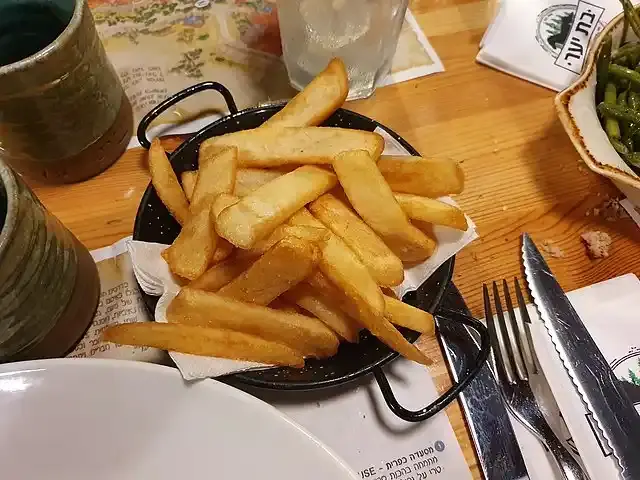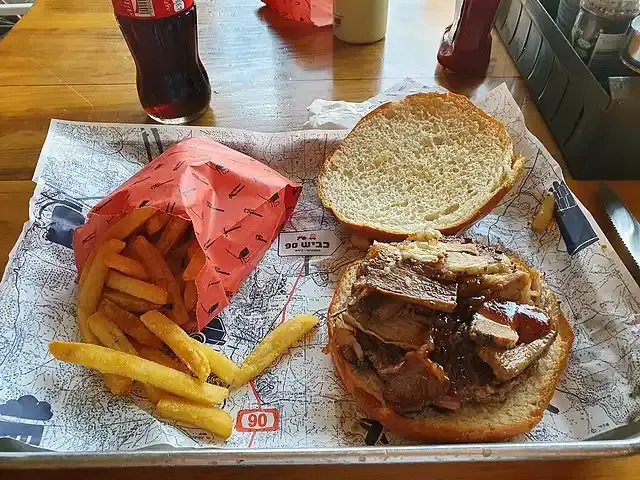The Mystery of French Fries: A Universal Love Story with French Gastronomy
Few foods have reached the level of universal admiration that French fries have achieved. Whether served in high-end restaurants, fast food chains or street stalls, these golden crispy foods are loved everywhere. However, the name "french fries" may be confusing. Why is it called French? What role does France play in the story of this ubiquitous snack? To understand this, you must embark on a journey covering the history of the potato, the rise of French gastronomy, and the spread of this famous dish.
Show key points
- Although French fries are globally admired, their origins trace back to the Andes in South America, where the potato was first domesticated around 8,000 years ago.
- Antoine-Augustin Parmentier played a crucial role in promoting the potato in France, turning it into a vital food source during times of scarcity.
- The method of frying sliced potatoes likely originated in Belgium, where people began frying potato strips in the 17th century as a substitute for fried fish during winter.
- ADVERTISEMENT
- The term "french fries" became popular in the English-speaking world due to the global prestige of French cuisine and possibly the use of "French" to describe slicing techniques.
- French chefs elevated the simple potato through refined culinary techniques, producing a variety of sophisticated dishes that showcase its versatility.
- French fries gained international popularity through the rise of fast food, particularly driven by chains like McDonald’s that introduced them across continents.
- French gastronomy, known for its precision, tradition, and artistic flair, continues to influence global cuisine and celebrates even the simplest ingredients like potatoes.
1. Potato origins.

The story of french fries begins far from France – in the Andes of South America, where potatoes were first domesticated about 8,000 years ago. The potato arrived in Europe in the late sixteenth century, where it was carried by Spanish explorers. However, it was not immediately welcomed by Europeans. At first, potatoes were viewed with suspicion and contempt, as suitable food for animals or only the poor. It took several centuries before the potato gained popularity throughout Europe.
Recommend
In France, Antoine-Augustin Parmentier, an eighteenth-century agronomist and pharmacist, was one of the main figures who championed the potato. Parmentier called for the cultivation and consumption of potatoes on a large scale, emphasizing their nutritional value. His efforts were instrumental in spreading the tuber, especially during times of famine when other crops failed. The name Parmentier is still associated with many potato dishes in French cuisine today, such as "Hachy Parmentier" (a meat pie based on potatoes).
2. The birth of French fries.
The exact origin of french fries is the subject of some controversy, but many historians agree that it first appeared in Belgium. In the late seventeenth century, people living near the Meuse often ate small fried fish. However, when the river froze in winter, they started cutting potatoes into fish and frying them in hot oil. This method of preparation spread throughout the region, and by the eighteenth century, french fries had become a popular snack in both Belgium and France.
The name "french fries" probably originated from the influence of French cuisine and culinary traditions, which were admired around the world during the nineteenth and early twentieth centuries. In the United States, soldiers returning from World War I tasted these French fries in Belgium, but since French was the language of diplomacy and culture at the time, they referred to it as "french fries." The term remained, although Belgium opposed the French claim to its invention.
3. The influence of French gastronomy.

France's culinary heritage is due to the development of modern culinary techniques and gastronomy, making French cuisine one of the most influential in the world. The concept of "fine cuisine" – fine and refined cooking – was perfected in France, and French chefs were often seen as pioneers in gastronomy. French cuisine has set global trends, with French food and drink seen as the pinnacle of sophistication.
Potatoes have become a staple of French gastronomy, used in a variety of recipes: mashed, baked, grilled and, of course, fried. French chefs have mastered the art of frying, and their expertise has helped elevate modest potatoes to a famous delicacy. French gastronomy adopted potatoes, using them to create dishes such as potato gratin (pommes de terre anna) and puffed french fries (pommes soufflées). In the French culinary tradition, even something as simple as frying potatoes was handled with attention to detail and the technique that sets it apart.
4. Spread french fries.

The emergence of French fries as a global phenomenon is closely related to the emergence of fast food culture, especially in the United States. With the advent of fast food chains in the mid-twentieth century, French fries became a standard side dish, cementing their position in world cuisine. McDonald's, in particular, has helped spread fries in every corner of the world, making them a staple in the fast food experience.
Today, fries are enjoyed in a variety of shapes – thin, crispy, wrinkled, waffle cut, or marinated – paired with a range of spices from ketchup to aioli. Throughout Europe, North America, Asia and beyond, French fries have been embraced and incorporated into local culinary traditions. In Belgium, they are served with mayonnaise, while in Canada, they are covered with cheese curds and broth to make poutine.
5. Why is it called "French"?
The term "french fries" may stem from two factors: the influence of French cooking techniques and the confusion between Belgium and France in the English-speaking world. French cuisine was world-famous, so it's no surprise that English-speakers associate French fries with French, although it is likely that they were first made in Belgium. Another explanation is that the term "to French" in nineteenth-century English means thinly sliced – so "french fries" can simply refer to how potatoes are chopped before frying.
Despite the disputed origin, the name remained, and "french fries" became the accepted term in most parts of the world. Interestingly, in France, these delicious crispy foods are called "pommes frites" or "frites" only, while in Belgium, they are celebrated as a national dish and are often simply referred to as "frites" as well.
6. The place of potatoes in French gastronomy.
Although the French did not invent potatoes, they certainly contributed to its success in gastronomy. French chefs have created countless dishes using potatoes, which are featured prominently in French cafes and bars. Dishes such as the creamy potato dish Gratin Dauphinois and the cheese mashed potato Aligot highlight how the French raise potatoes to a comfortable food level with great depth and flavor.
The French skill in taking simple ingredients and turning them into gastronomic masterpieces is why their culinary traditions continue to influence world cuisine today. And French fries are just one of many examples of how French gastronomy captures the world's imagination and tastes.
7. The world's love for French gastronomy.

French gastronomy occupies a unique place in the hearts and kitchens of foodies around the world. Known for its elegance, precision and creativity, French cuisine has set the standard for excellence in gastronomy for centuries. This universal love of French food is not only about the dishes themselves, but also about the culture, history and technologies that support them. French culinary traditions value the use of high-quality ingredients, seasonality and attention to detail – attributes that have earned it a place on UNESCO's list of intangible cultural heritage.
From Michelin-starred restaurants to mini pastries, French culinary expertise is respected. Techniques such as simmering, charding, and simmering, which originated in France, are taught in culinary schools around the world. French terms such as assistant chef, cooking in place, and oven cooking have become part of the universal culinary language. Popular dishes such as chicken with wine, beef bourguignon and crème brûlée are celebrated in kitchens outside France's borders.
This love for French cuisine also extends to wine and cheese, with France being one of the most prominent producers. The art of pairing wine with food – a practice mastered by the French – has become a standard in fine dining restaurants around the world. Even in the most informal setting, the influence of French gastronomy is evident, with chefs and home chefs alike seeking to incorporate French techniques into their own culinary traditions.
French gastronomy is also a way of life – one that prioritizes enjoying meals, respecting traditions, and sharing food with others. It's not just about feeding the body but also nourishing the soul through group experiences around the table. This cultural reverence for food has captivated people globally, and French cuisine remains a symbol of sophistication, sophistication and ultimate culinary pleasure.
As the world continues to evolve, French gastronomy adapts while maintaining its core values. Whether it's a fine dining establishment in Tokyo, a café in New York, or a street vendor in Bangkok, French technologies and flavours continue to inspire chefs and delight diners everywhere. The love of French food is more than just a passing trend; it is a lasting testament to the power of great cooking and its ability to transcend borders, time and culture.
The journey of French fries – from its humble beginnings in Belgium to becoming a worldwide favorite – is a testament to the universal appeal of French gastronomy. Although the word "French" in french fries may be a historical incident, it reflects France's enduring influence on the global culinary landscape. The potato, once a despised crop, has become a star in kitchens everywhere, thanks in part to the culinary creativity of the French and their neighbors. Today, a serving of crispy and golden fries is accompanied by a portion of culinary history that connects continents, cultures and centuries.








